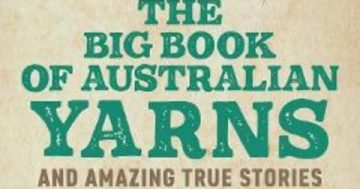 The Australia and New Zealand School of Government (ANZSOG) has put together a list of books to help Public Service employees survive the summer, while expanding their minds and developing new perspectives on the world.
The Australia and New Zealand School of Government (ANZSOG) has put together a list of books to help Public Service employees survive the summer, while expanding their minds and developing new perspectives on the world.
“It’s been another challenging and exhausting year for many in the Public Sector and we hope you will get the chance to take some time off over summer and absorb yourself in a good book or two,” ANZSOG said in a statement.
“We can’t ignore the fact that COVID has been the topic of conversation in 2021, but this year’s list includes some of our favourite writing on science, culture and public policy, as well as fiction,” it said.
The list includes 18 fiction and non-fiction books which ANZSOG has determined will keep Public Servants entertained over the (hopefully) warmer summer months.
In fiction, ANZSOG has recommended:
A Room Made of Leaves by Kate Grenville, an award-winning novel which explores the world of early colonial New South Wales through an imagined memoir by Elizabeth Macarthur;
Klara and the Sun by Kazuo Ishiguro, a novel set in a dystopian future of genetic engineering and human isolation, which explores the nature of love and friendship and what it means to be human; and
Silverview by John le Carré, the final novel from the legendary spymaster John le Carré (Tinker, Tailor, Soldier, Spy; Smiley’s People; and The Russia House), published posthumously.
In non-fiction the ANZSOG team recommends:
The Premonition by Michael Lewis, a first draft of the history of the COVID-19 pandemic, which draws together the stories of a group of people who anticipated, traced and hunted the coronavirus;
Spike: The Virus vs the People by Jeremy Farrar with Anjana Ahuja, a memoir by Dr Jeremy Farrar, part of the UK Government’s key Scientific Advisory Group for Emergencies when COVID hit in March 2020;
The Idea of the Brain by Matthew Cobb, a thrilling history of the rapidly expanding understanding of the brain, as well as the metaphors people have used to make sense of it;
Boris Johnson – The Gambler by Tom Bower, an attempt to unravel the enigma of British Prime Minister, Boris Johnson, this book tries to reconcile Johnson’s ruthless ambition with his bumbling public persona;
The Brilliant Boy: Doc Evatt and the great Australian dissent by Gideon Haigh. Former High Court judge and federal Labor leader H. V. ‘Doc’ Evatt has long been obscured by Menzies’s broad shadow, as he struggled to keep the Australian Labor Party together in Opposition through the prosperous and complacent 1950s, this book shows Evatt as the most brilliant Australian of his day;
Welcome to Country updated edition by Marcia Langton, this guide highlights myriad ways to engage and deepen our knowledge and appreciation of Australia’s First Peoples through travel;
Quarterly Essay 82: Exit Strategy – Politics after the Pandemic by George Megalogenis, is a survey of Australia’s options to deal with the post-pandemic world and likely recession;
Solving Public Problems by Beth Noveck, shows how readers can take advantage of digital technology, data and the collective wisdom of communities to design and deliver powerful solutions to contemporary problems;
Activism, Feminism, Politics and Parliament by Margaret Wilson, is the story of one of New Zealand’s most eminent political actors and a powerful and illuminating analysis of the politics of New Zealand during the major economic and social reforms of the 1980s and 1990s;
Empire of Pain – the secret history of the Sackler dynasty by Patrick Radden Keefe, is a chronicle of the US opioid crisis through the rise and fall of the secretive Sackler dynasty, which grew rich on selling the highly addictive painkiller OxyContin;
Another Day in the Colony by Chelsea Watego, is a ground-breaking work – and a call to arms – that exposes the ongoing colonial violence experienced by First Nations people;
Te pune waiora – the distinguished weavers of te kahui whiritoi by Ngahuia Te Awekotuku, Donna Campbell, Nathan Pohio and Awhina Tamarapa, this book shares the energy, culture and strength of the weavers of Te Kahui Whiritoi, and their taonga;
The Devil You Know by Gwen Adshead with Eileen Horne, is a grim but fascinating book, which is a reminder of the complicated humanity of people marked forever by their terrible crimes;
We are not broken: changing the autism conversation by Eric M. Garcia, who shows what it’s like to be autistic across America, using his own life as a springboard to discuss social and policy gaps that hurt people with autism;
The Tyranny of Merit: What’s Become of the Common Good? by Michael J. Sandel. Political philosopher, Sandel argues that rethinking our attitudes towards success and failure is a first step to improving social mobility.



